Animals
-
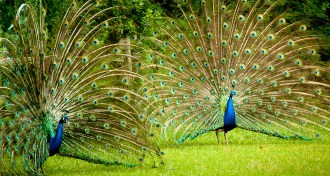 Animals
AnimalsMale peacocks keep eyes low when checking out competition
Eye-tracking technology shows peacocks barely gaze at the full height of other males magnificent eyespot feather spreads.
By Susan Milius -
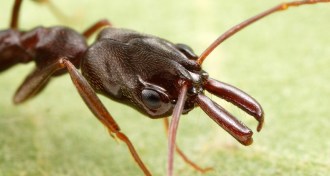 Animals
AnimalsHow a trap-jaw ant carries a baby
Powerful jaws make the Odontomachus brunneus ant a skilled escape artist.
By Susan Milius -
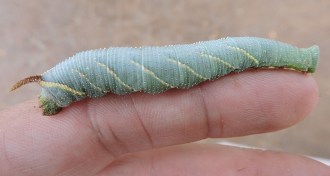 Animals
AnimalsWhy whistling caterpillars scare birds
Caterpillars that whistle when birds peck at them may be giving phony avian warning calls.
By Susan Milius -
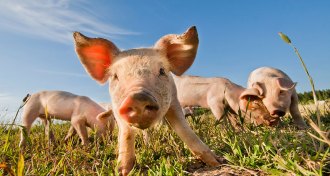 Animals
AnimalsPigs don’t deserve the name ‘Lesser Beasts’
From ancient forests to modern farms, pigs’ relationship with humans has been symbiotic.
-
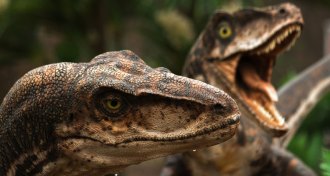 Animals
AnimalsCould the dinos of ‘Jurassic World’ become invasive?
Even if they escaped their island home, the giant reptiles of ‘Jurassic World’ probably wouldn’t survive on the mainland. But the movie’s plants are another story.
-
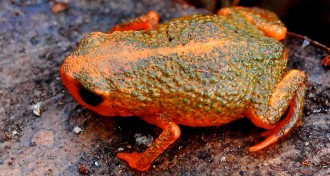 Animals
AnimalsNewly discovered tiny frogs live on islands in the sky
Scientists find seven new species of frogs in southern Brazil, and more could be waiting, they say.
-
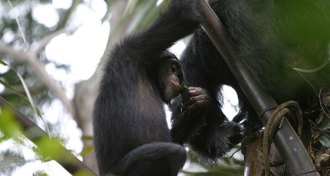 Animals
AnimalsChimps get buzzed on fermented tree sap
Scientists have documented the first case of chimpanzees drinking ethanol in the wild.
-
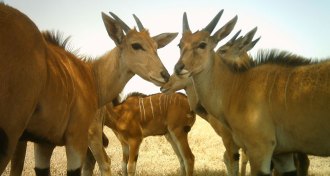 Animals
AnimalsCamera traps provide treasure trove of African animal pics
Scientists set up hundreds of cameras across Serengeti National Park to capture images of predators and their prey.
-
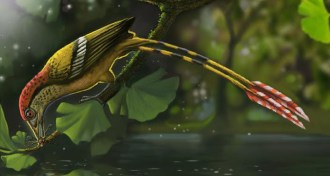 Paleontology
PaleontologyHorned dino aside, here are some other fun fossil finds
Here's a roundup of some fossil finds reported this week.
-
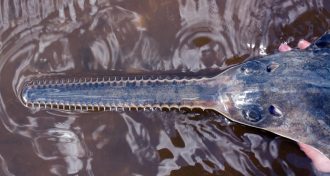 Animals
Animals‘Virgin births’ won’t save endangered sawfish
Sawfish are the first wild vertebrates found to reproduce via parthenogenesis.
-
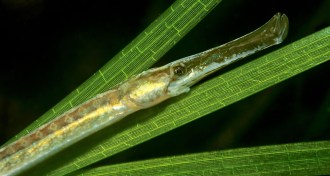 Animals
AnimalsPregnant male pipefish not so great at giving embryos oxygen
During male pregnancy, pipefish embryos can get stunted by low oxygen in dad’s brood pouch.
By Susan Milius -
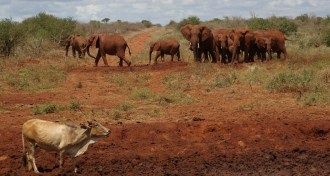 Animals
AnimalsAfrican herbivores share space but not diet
Large herbivorous mammals on the plains of Kenya have distinctive diets, a new study finds.